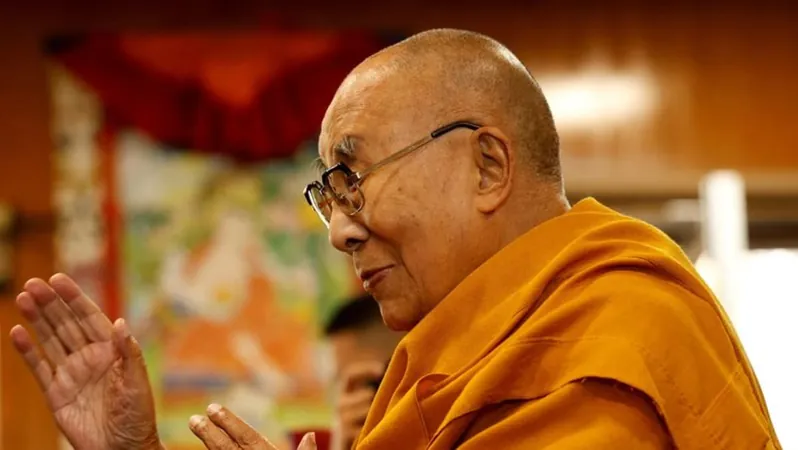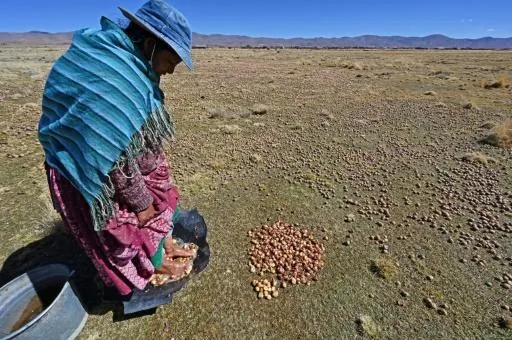
Dalai Lama Declares Reincarnation Plans, Sparks Tensions with China
2025-07-02
Author: Jia
In a powerful declaration that’s bound to stir international reactions, the highly revered Dalai Lama confirmed on Wednesday, July 2, that he will be reincarnated, ensuring the continuation of the Tibetan spiritual lineage. This announcement comes just days before the Nobel Peace Prize winner celebrates his 90th birthday, alleviating concerns he may be the last in this centuries-old tradition.
Addressing a gathering in Dharamshala, the Dalai Lama made it clear that the Gaden Phodrang Trust, a non-profit organization he founded, will solely identify his successor, challenging China’s claims that it holds the power to choose the next leader.
"I am affirming that the institution of the Dalai Lama will continue," he stated in a video message, emphasizing that his legacy would not be defined by foreign interference. Over 100 monks, global journalists, and even Hollywood actor Richard Gere were present to witness this historic moment.
Responding to the Dalai Lama’s statement, Chinese foreign ministry spokesperson Mao Ning reiterated that China intends to have a say in determining the successor's identity through traditional rituals. This position reinforces China's portrayal of the Dalai Lama as a separatist, promoting its agenda concerning Tibetan sovereignty.
For years, the Dalai Lama has hinted that his successor might be born outside of China, urging Tibetan followers to disregard any candidate chosen by Beijing. In a break from tradition, he has even suggested that there may not be a successor at all.
A Rich Tapestry of Tradition
Tibetan beliefs hold that a senior monk’s spirit is reborn in a child after their death. The current Dalai Lama, born Lhamo Dhondup in 1935, was recognized as the reincarnation at just two years old based on significant signs and visions.
As one of the most influential spiritual leaders globally, his impact extends far beyond Buddhism, earning him widespread admiration and the Nobel Peace Prize in 1989.
Ambiguity in Succession
Despite his assurances, Samdhong Rinpoche, a senior official from the Gaden Phodrang Trust, mentioned that no formal written instructions regarding succession have been issued yet. He highlighted that the next leader could be of any gender and not necessarily Tibetan, broadening the scope of identification.
In stark contrast, China claims a historical right to approve the next Dalai Lama, rooted in practices from the Qing dynasty, including the controversial golden urn selection ritual.
With rising tensions, Penpa Tsering, leader of the Tibetan government-in-exile, expressed hope that health considerations might allow the Dalai Lama to visit Tibet in the future, potentially challenging China's authority.
With support from the United States, which is pushing for Tibetan rights and seeking to counter China on the global stage, the future of Tibetan Buddhism hangs in a delicate balance, raising questions about leadership, sovereignty, and spiritual identity.

 Brasil (PT)
Brasil (PT)
 Canada (EN)
Canada (EN)
 Chile (ES)
Chile (ES)
 Česko (CS)
Česko (CS)
 대한민국 (KO)
대한민국 (KO)
 España (ES)
España (ES)
 France (FR)
France (FR)
 Hong Kong (EN)
Hong Kong (EN)
 Italia (IT)
Italia (IT)
 日本 (JA)
日本 (JA)
 Magyarország (HU)
Magyarország (HU)
 Norge (NO)
Norge (NO)
 Polska (PL)
Polska (PL)
 Schweiz (DE)
Schweiz (DE)
 Singapore (EN)
Singapore (EN)
 Sverige (SV)
Sverige (SV)
 Suomi (FI)
Suomi (FI)
 Türkiye (TR)
Türkiye (TR)
 الإمارات العربية المتحدة (AR)
الإمارات العربية المتحدة (AR)